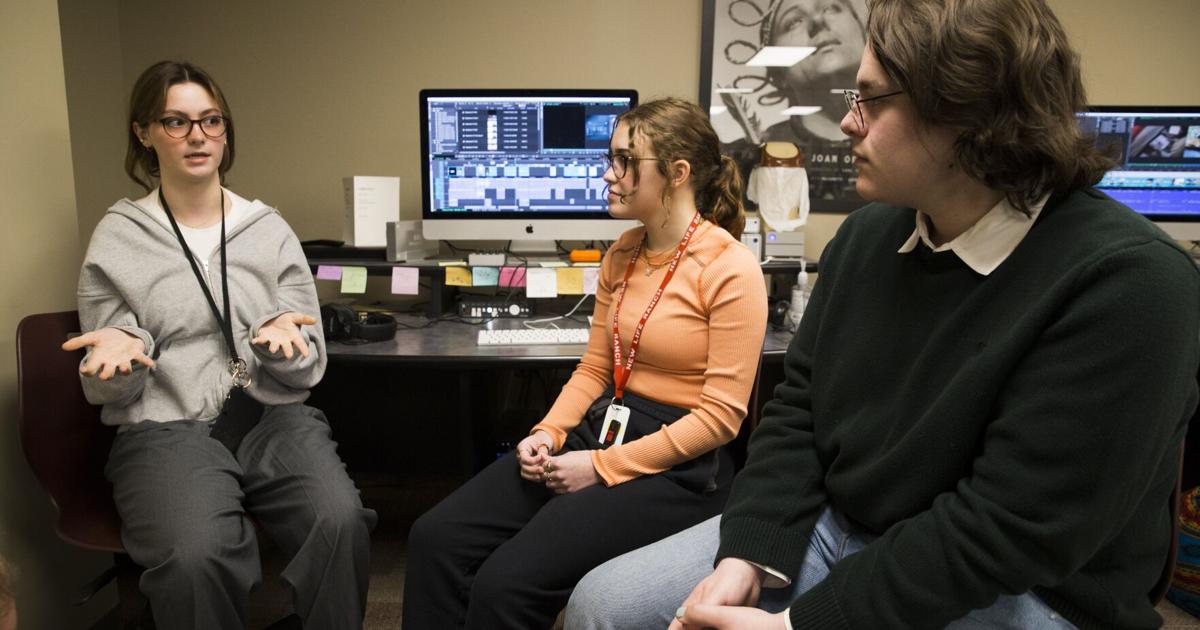
JENKS — A dearth of documents and a TED Talk led three Jenks students to make an award-winning film.
While trying to brainstorm topics for C-SPAN’s annual StudentCam documentary contest, a TED Talk on quantum computing gave Jenks juniors Sophia Smith, Lauren Cargal and Jacob Shaddock the idea to dig in on cybersecurity.
To enter, students had to create a five- to six-minute film exploring a federal policy that has had a direct impact on them or their community. However, for the Jenks trio, a comparative lack of federal legislation specifically dealing with cybersecurity flagged their interest.
“It really wasn’t about the legislation,” Smith said. “It was about the lack of it. There was so little of it that it stood out to us.”
Along with a newfound appreciation for two-factor authentication processes, the trio recently earned a second-place finish in the annual C-SPAN contest with the six-minute film that they researched, wrote, shot, edited and scored entirely within a three-month window.
People are also reading…
More than 3,000 secondary students entered the contest this year, representing 41 states, the District of Columbia, Morocco and South Korea. Topics covered by the student films ranged from preserving Black cemeteries to the Safe Drinking Water Act of 1974 to the American Rescue Plan to the impact of the Federal Emergency Management Agency.
Award winners received cash prizes ranging from $5,000 for the grand prize to $250 for honorable mention. Combined, 14 Jenks film students won $6,000 in prize money this year for their documentaries. Every year since 2007, Jenks has had at least one student film place in the competition.
On top of the cash awards, two of the students’ films will be aired on national television. Sophomores Kate Pinnell and Analicia Wilde’s film on the U.S. Department of Agriculture’s National Dairy Checkoff Program will be shown on C-SPAN on April 4. The documentary by Cargal, Shaddock and Smith is scheduled to air April 12.
Thanks to the omicron surge, Jenks Public Schools was in distance learning the week leading up to the entry deadline in mid-January. With the necessary editing software staying on campus, students received permission to come in and work on their films during school hours on distance-learning days as long as they observed the district’s COVID-19 protocols.
Those distance-learning days wound up being a boon, the students said.
“It wound up being very helpful,” Shaddock said. “Without that extra time, we would not have finished. It’s kinda scary to think about that.”
Even with the extra challenges thrown by COVID-19, Jenks film teacher Clifton Raphael said his students voted unanimously to continue participating in the contest rather than pivot to another project, in part because of the skills learned in the documentary-making process.
Along with learning how to write, shoot and edit a film, the students learned research skills, media literacy, how to conduct interviews with subject matter experts and how to adjust their plans on the fly.
“I had thought about phasing out our participation, but I wanted to ask the students,” Raphael said. “This was the first year I’ve ever asked that question where they all universally said yes. So now we’re going to do it next year.
“The majority of my students go into film, but for those who don’t, they’ve said that this is such a helpful thing to have when applying for college whether they win or not because they can say they’ve done that sort of work.”
Video: Tulsa World Newsroom: How does a book end up at your kid’s school library?
https://ift.tt/cf1J7Mt
Film
Bagikan Berita Ini














0 Response to "Jenks students win big in CSPAN film contest - Tulsa World"
Post a Comment